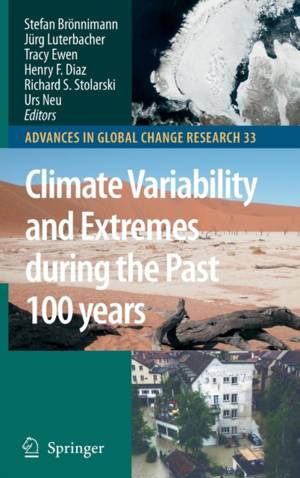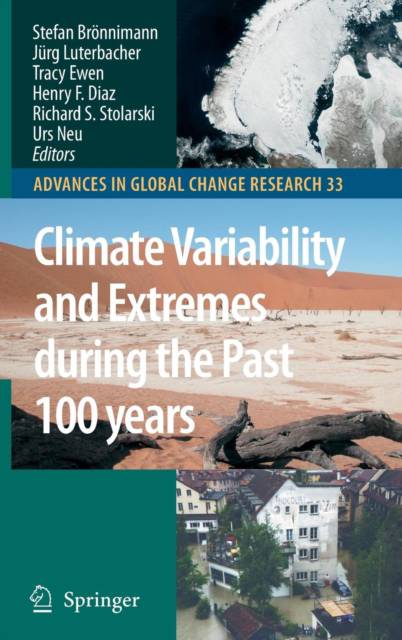
- Retrait gratuit dans votre magasin Club
- 7.000.000 titres dans notre catalogue
- Payer en toute sécurité
- Toujours un magasin près de chez vous
- Retrait gratuit dans votre magasin Club
- 7.000.0000 titres dans notre catalogue
- Payer en toute sécurité
- Toujours un magasin près de chez vous
Climate Variability and Extremes During the Past 100 Years
251,45 €
+ 502 points
Description
Large progress has been made in the past few years towards quantifying and understanding climate variability during past centuries. At the same time, present-day climate has been studied using state-of-the-art data sets and tools with respect to the physical and chemical mechanisms governing climate variability. Both the understanding of the past and the knowledge of the processes are important for assessing and attributing the anthropogenic effect on present and future climate. The most important time period in this context is the past approximately 100 years, which comprises large natural variations and extremes (such as long droughts) as well as anthropogenic influences, most pronounced in the past few decades. Recent and ongoing research efforts steadily improve the observational record of the 20th century, while atmospheric circulation models are used to underpin the mechanisms behind large climatic variations. Atmospheric chemistry and composition are important for understanding climate variability and change, and considerable progress has been made in the past few years in this field. The evolving integration of these research areas in a more comprehensive analysis of recent climate variability was reflected in the organisation of a workshop "Climate variability and extremes in the past 100 years" in Gwatt near Thun (Switzerland), 24-26 July 2006. The aim of this workshop was to bring together scientists working on data issues together with statistical climatologists, modellers, and atmospheric chemists to discuss gaps in our understanding of climate variability during the past approximately 100 years.
Spécifications
Parties prenantes
- Editeur:
Contenu
- Nombre de pages :
- 364
- Langue:
- Anglais
- Collection :
- Tome:
- n° 33
Caractéristiques
- EAN:
- 9781402067655
- Date de parution :
- 21-01-08
- Format:
- Livre relié
- Format numérique:
- Genaaid
- Dimensions :
- 157 mm x 236 mm
- Poids :
- 748 g

Les avis
Nous publions uniquement les avis qui respectent les conditions requises. Consultez nos conditions pour les avis.





